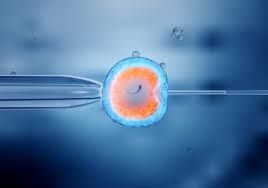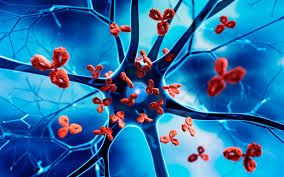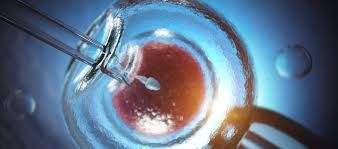Egg and sperm donation India
Fertility Solutions in India: Comprehensive Egg and Sperm Donation Programs
India has established itself as a global leader in fertility treatments, offering a wide array of advanced reproductive services, including egg and sperm donation. With cutting-edge technology, experienced medical professionals, and a robust legal framework, India provides a reliable and affordable destination for couples seeking to overcome fertility challenges. In this article, we will explore the various aspects of egg and sperm donation in India, how these services are regulated, and why India is becoming a premier destination for fertility care.
Why Choose India for Fertility Treatments?
India’s rise in global healthcare, particularly in fertility services, has attracted patients worldwide. The country's combination of affordability and advanced medical techniques makes it an appealing option for couples who seek high success rates in their fertility journeys. Alongside cost-effective solutions, India offers a diverse range of specialized treatments, ensuring a personalized and comprehensive approach to reproductive care.
Advanced Medical Technology and Success Rates
India's fertility clinics boast state-of-the-art medical equipment, enabling a high success rate in assisted reproductive technologies (ART) like IVF, egg donation, and sperm donation. Indian clinics use advanced diagnostic tools and personalized fertility plans, maximizing the chances of a successful outcome. The availability of Preimplantation Genetic Testing (PGT) further ensures the health of the embryos, improving pregnancy outcomes for patients.
Affordable Yet High-Quality Healthcare
Compared to Western countries, India provides fertility treatments at a fraction of the cost without compromising on the quality of care. The lower cost is not due to any reduction in medical standards but is largely influenced by India’s economic environment, which makes high-quality healthcare accessible at more affordable rates. Many clinics also offer packages, making it easier for international patients to plan and undergo treatments in India.
Egg Donation in India: Empowering Women to Achieve Parenthood
Egg donation plays a crucial role for women who face difficulties in conceiving due to age or medical conditions. The process in India is highly regulated to ensure both the safety of the donor and the success of the recipient. The donor selection process is stringent, focusing on health, genetics, and overall well-being.
Donor Screening and Selection
Egg donors in India undergo comprehensive health screenings to ensure they are free from genetic conditions and infectious diseases. Typically, donors are young, healthy women between 21 and 30 years old. This ensures that the donated eggs are of the highest quality, increasing the chances of successful fertilization and pregnancy for the recipient.
The Egg Donation Process
Once a donor is selected, the process involves stimulating her ovaries to produce multiple eggs, which are then retrieved through a minor surgical procedure. The eggs are fertilized with the recipient’s partner’s sperm or donor sperm in a lab setting. After fertilization, the embryos are transferred to the recipient’s uterus, offering a promising path to pregnancy.
Sperm Donation in India: A Solution for Male Infertility
Sperm donation offers hope to couples facing male infertility. As with egg donation, the sperm donation process in India is highly regulated to ensure the highest standards of safety and success.
Strict Donor Guidelines
Sperm donors in India are carefully screened to ensure they meet strict medical and genetic criteria. This ensures that only the highest quality sperm is used for fertility treatments. Donors must pass multiple tests, including those for genetic disorders and sexually transmitted infections (STIs), ensuring that the sperm used is healthy and viable.
Combining Sperm Donation with Advanced Fertility Treatments
Sperm donation is typically combined with treatments such as Intrauterine Insemination (IUI) or IVF. In IUI, donor sperm is inserted directly into the uterus during ovulation, while IVF involves fertilizing eggs with donor sperm in a lab. Both methods are widely used in India’s fertility clinics, offering various options depending on the specific needs of the couple.
Legal and Ethical Considerations for Donation in India
India maintains a clear and well-regulated legal framework surrounding egg and sperm donation, ensuring the protection and anonymity of both donors and recipients.
Anonymity and Legal Rights
Both egg and sperm donors in India remain anonymous. They have no legal rights or responsibilities toward any resulting children, providing peace of mind to recipients. This anonymity ensures that donor identities are protected, allowing for a secure and respectful treatment process.
Ethical and Regulatory Oversight
Indian fertility clinics follow stringent ethical guidelines set by national regulatory bodies. These rules ensure that clinics operate with integrity, transparency, and responsibility. Patients are informed about the ethical and medical implications of their treatments, enabling them to make well-informed decisions.
Emotional and Psychological Support During Treatment
The emotional journey of undergoing fertility treatment can be overwhelming. Recognizing this, many clinics in India offer counseling services to support patients throughout their fertility journey. Whether dealing with the stress of the treatment process or the emotional complexity of egg and sperm donation, these services provide valuable support to individuals and couples.
Success Rates and Personalized Care in Indian Fertility Clinics
India’s fertility clinics are known for their impressive success rates in treatments like IVF, egg donation, and sperm donation. These success rates are largely attributed to the personalized care that patients receive. Clinics design individualized fertility plans based on each patient’s medical history and needs, ensuring that treatment is both effective and appropriate.
Post-Treatment Monitoring and Care
Following treatment, clinics in India continue to provide follow-up care, ensuring that patients are well-supported throughout their pregnancy journey. This commitment to comprehensive care extends beyond the procedure itself, contributing to India’s reputation for excellence in fertility care.
Medical Tourism and Fertility Treatment in India
India’s prominence in medical tourism extends to fertility care, with thousands of patients traveling to the country each year for treatments. Alongside its cutting-edge medical infrastructure, India offers a rich cultural experience, making it an attractive destination for those seeking treatment.
World-Class Facilities and Accommodations
India’s fertility clinics are often located in major metropolitan areas, allowing easy access to top-tier accommodations and wellness facilities. Many clinics also offer package deals that include accommodations, transportation, and even sightseeing, making the treatment process smoother for international patients.
Blending Treatment with Travel
For those traveling from abroad, India offers an unparalleled cultural experience. Patients can explore historical landmarks, enjoy diverse culinary offerings, and relax in wellness retreats as part of their fertility journey. Combining medical care with travel, India provides an all-encompassing experience for those undergoing fertility treatments.
Conclusion: India as a Global Leader in Fertility Care
India’s fertility clinics provide a comprehensive and advanced approach to egg and sperm donation, offering hope to couples facing infertility. With its combination of affordability, high success rates, and world-class healthcare, India is a global leader in fertility care. Whether you are considering egg donation, sperm donation, or other assisted reproductive treatments, India provides an environment where modern medical technology meets compassionate, personalized care.






